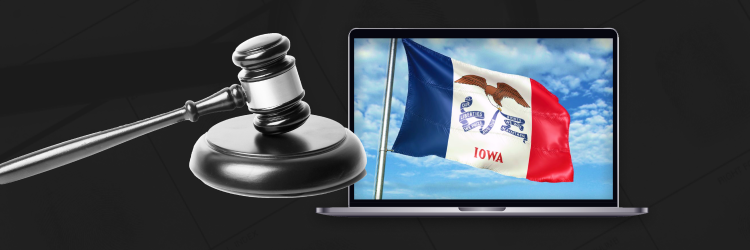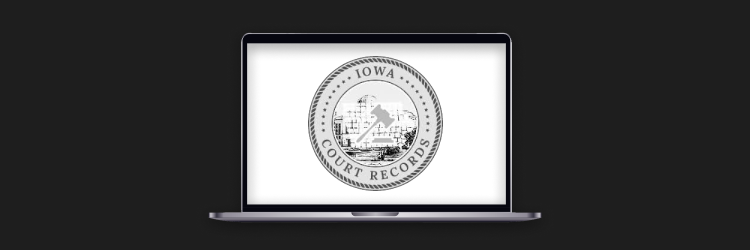Background Check in Iowa: Screening Process & State Laws
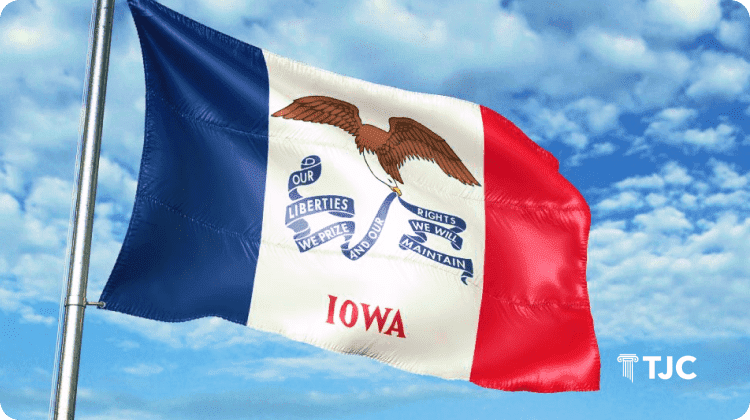
In Iowa, background checks are crucial for employers, landlords, and licensing agencies to verify individuals’ trustworthiness and safety. They review personal, professional, and criminal histories to confirm accuracy and assess reliability.
This guide covers how to request a background check, what information it includes, Iowa’s laws on these checks, steps to obtain a state background check, disqualifying factors, and recommended services.
Need a Background Check?
What Is an Iowa Background Check?
An Iowa background check involves a thorough review of an individual’s personal, professional, and criminal history. Employers, landlords, and licensing agencies rely on these checks to make informed decisions.
By verifying claims and uncovering past behaviors, background checks help maintain safety, trust, and compliance with state and federal laws. They are crucial for assessing the reliability and trustworthiness of individuals in responsible positions.
What Are the Background Check Laws in Iowa?
Here’s a detailed look at the relevant laws in Iowa:
Iowa Code Chapter 692 (Criminal History and Intelligence Data)
Iowa Code Chapter 692 governs the collection, maintenance, and dissemination of criminal history and intelligence data. It specifies who is authorized to access this data and under what conditions. This chapter ensures that criminal history information is handled with confidentiality and only shared with authorized individuals or entities.
Iowa Code Chapter 235A (Child Abuse)
Iowa Code Chapter 235A establishes the Central Registry for child abuse information. Employers and licensing authorities can access this registry to perform background checks on individuals who will be working with children.
This chapter ensures that individuals with a history of child abuse are identified and barred from positions where they could harm children.
Iowa Code Chapter 235B (Dependent Adult Abuse)
This chapter sets up the Dependent Adult Abuse Registry. Similar to the child abuse registry, it allows for background checks on individuals who will be working with dependent adults. This law helps protect vulnerable adults by ensuring that caregivers and other workers have no history of abuse.
Iowa Code Chapter 135C (Health Care Facilities)
Iowa Code Chapter 135C requires healthcare facilities to conduct background checks on all prospective employees. This includes checks against the abuse registries and criminal history records. The goal is to ensure that healthcare workers do not have a history that would make them unsuitable for working with patients.
Iowa Code Chapter 135B (Hospitals and Health Care Facilities)
Complementing Chapter 135C, Iowa Code Chapter 135B specifically mandates background checks for employees of hospitals and other healthcare facilities. It ensures that all staff, from doctors to support personnel, have been vetted to maintain a safe and secure environment for patients.
Iowa Code Chapter 135P (Health Care Worker Background Checks)
Iowa Code Chapter 135P details the requirements for background checks specifically for healthcare workers. This chapter focuses on ensuring that individuals providing direct care to patients have clean records, thus safeguarding patient well-being and trust in health care services.
Iowa Code Chapter 80A (Private Investigative Agencies and Security Agents)
This chapter regulates private investigative agencies and security agents, requiring thorough background checks to ensure that individuals in these roles are trustworthy and qualified. It outlines the licensing requirements and the need for regular background checks to maintain certification.
Iowa Code Chapter 80B (Law Enforcement Training and Certification)
Iowa Code Chapter 80B establishes the standards for the training and certification of law enforcement officers. Background checks are a fundamental part of this process, ensuring that individuals entering law enforcement roles have no disqualifying criminal history and are fit for duty.
Fair Credit Reporting Act (FCRA) (Federal)
The Fair Credit Reporting Act (FCRA) is a federal law that affects how background checks are conducted nationwide, including in Iowa. It requires that employers obtain written consent from the individual before conducting a background check, provide a copy of the report, and follow certain procedures if any adverse action is taken based on the report.
Equal Employment Opportunity Commission (EEOC) Guidelines (Federal)
The EEOC guidelines aim to prevent discrimination in the use of background checks. These guidelines help ensure that background checks are applied fairly and do not disproportionately affect certain groups.
Employers must consider the nature of the offense, the time elapsed, and the relevance to the job when making employment decisions based on background checks.
How Do I Get a State Background Check in Iowa?
Determine the Type of Check Needed:
- Determine whether you need a criminal history check, child abuse registry check, or dependent adult abuse registry check. This will guide you to the correct forms and procedures.
Complete the Necessary Forms:
- For a criminal background check, access the Iowa Department of Public Safety and fill out the DCI Record Check form;
- If you are paying by credit card, complete the DCI Billing form as well.
Submit Your Request:
- Online: Visit the Iowa Courts Online Search portal to access criminal records electronically.
- Mail or Fax: Print and mail or fax the completed forms to the Division of Criminal Investigation (DCI) office.
- In-Person: Deliver the forms directly to the Iowa Department of Public Safety, Criminal History Record Check Division, located at 215 East 7th Street, Des Moines, Iowa. This method allows you to address any immediate questions or concerns with the staff directly.
Payment:
- Each background check costs $15 per last name requested. Payments can be made using MasterCard, Visa, or Discover. Ensure the payment is submitted with your request to avoid any processing delays.
Receive Your Report:
- Once your request is processed, you will receive the background check report through your chosen method of delivery (online, mail, or in-person pick-up). Processing times may vary, but you can typically expect to receive the report within a few business days.
What Shows up on an Iowa Background Check?
An Iowa background check can reveal various types of information, depending on the nature and scope of the check requested. Here’s a detailed breakdown of what typically shows up on different types of background checks:
Civil Court Searches
Civil court searches are crucial for understanding an individual’s financial stability and legal standing. They include:
- Lawsuits
- Liens
- Judgments
- Bankruptcies
- Other civil litigation
Employment Background
Employment verification ensures the accuracy of an applicant’s work history, supporting:
- Previous positions held
- Dates of employment
- Job titles
- Reasons for leaving
Driving Record Checks
Driving record checks are essential for roles involving driving responsibilities, revealing:
- Traffic violations
- DUIs
- Suspensions
- Revocations
Education Verification
Education verification confirms an applicant’s qualifications, validating:
- Degrees earned
- Institutions attended
- Dates of attendance
Drug Testing
Drug testing involves screening the individual for the presence of illegal substances. Results from drug tests are used to ensure a safe and drug-free workplace. Screening includes:
- Screening for the presence of illegal substances such as marijuana, cocaine, opioids, etc.
- Testing methods may include urine, blood, saliva, or hair follicle analysis.
Criminal Background Checks
Criminal background checks assess an individual’s trustworthiness for roles requiring security, examining:
- Arrests
- Charges
- Convictions
- Incarcerations
Credit Background Checks
Credit background checks evaluate financial responsibility, including:
- Credit history
- Debt levels
- Payment history
- Bankruptcies
These checks collectively provide employers with comprehensive insights into an applicant’s background, ensuring informed hiring decisions and workplace safety.
How Far Back Does a Background Check Go in Iowa?
In Iowa, background check durations vary. For most jobs under $75,000 annually, checks typically cover seven years under the Fair Credit Reporting Act (FCRA). This means older criminal records may not be reported.
However, some positions or state laws may require checks beyond seven years, especially for higher-paying jobs or those needing strict security clearances. Always check the job’s specific requirements
How Long Does a Background Check Take in Iowa?
The processing time for background checks in Iowa can vary:
- Standard Checks: Typically processed within 1 to 3 business days due to efficient handling by the Iowa Department of Public Safety and online systems.
- Complex Cases: The timeframe may extend beyond 3 days if the background check involves more complex queries or if there is a high volume of requests. Factors such as the need for additional verification or detailed checks can also influence the processing time.
How Much Does a Background Check in Iowa Cost?
Cost of Background Checks in Iowa:
- Fee: Each background check costs $15 per last name requested, regardless of the submission method (online, mail, fax, or in-person).
- Payment: Accepted methods include MasterCard, Visa, or Discover.
- Procedure: Payment must accompany each request, and if submitting multiple requests, each requires its own payment and billing form.
What Disqualifies You on an Iowa Background Check?
Disqualifying Offenses
Serious criminal convictions such as felonies and specific misdemeanors can lead to disqualification. Each type of offense is evaluated based on its severity and relevance to the job or purpose of the background check.
Rehabilitation Proof
Iowa law allows individuals to provide proof of rehabilitation even if they have disqualifying convictions. This can include documentation of completed programs, community service, or other rehabilitative actions that demonstrate a commitment to positive change.
Job-Specific Criteria
Some positions may have specific disqualification criteria based on state laws or employer policies. For instance, jobs requiring professional licenses or working with vulnerable populations may have stricter background check requirements.
Where To Get A Background Check In Iowa?
Obtaining a background check in Iowa can be done through several methods depending on your needs:
- Iowa Courts Online Search Portal: For criminal records, you can access the Iowa Courts Online Search portal to retrieve information electronically. This method is convenient for quick access to records.
- Iowa Department of Public Safety: For comprehensive criminal history checks, visit the Iowa Department of Public Safety, Criminal History Record Check Division. You can submit your request in person or by mail.
- Division of Criminal Investigation (DCI): Complete the necessary forms (DCI Record Check form and DCI Billing form if paying by credit card) and submit them via mail or fax to the DCI office.
- Online Background Check Services: Background check sites provide extensive background information, including criminal records, employment history and more. These services offer user-friendly platforms for accessing detailed reports, but they can be used only for personal purposes and basic searches.
Best Background Check Sites
When it comes to running background checks in Iowa, choosing a reliable service is crucial. Below are some trusted websites to consider, each with its own set of pros and cons:
- TruthFinder – Best for In-Depth Reports
- InstantCheckMate – Best for Simplicity and Ease of Use
- Been Verified – Best for Comprehensive Public Records
TruthFinder is highly regarded for its detailed background reports, ideal for conducting thorough background checks in Iowa. It includes comprehensive information such as criminal records, personal history, contact details, and even social media profiles. Truthfinder ensures accuracy and depth, making it a reliable choice for detailed investigations. Star Rating / 5.0 Instant Checkmate is known for its straightforward and efficient background check process, particularly beneficial for users in Iowa. It offers a quick and uncomplicated way to access criminal records, personal information, and more. Instant Checkmate ensures users receive necessary data efficiently, avoiding unnecessary complexity. Star Rating / 5.0 BeenVerified is known for its extensive public records database, making it a valuable resource for conducting thorough background checks in Iowa. It provides a wide range of information, including criminal records, financial data, and contact details, all accessible through a single platform. BeenVerified is ideal for users seeking comprehensive searches across multiple categories. Star Rating / 5.0
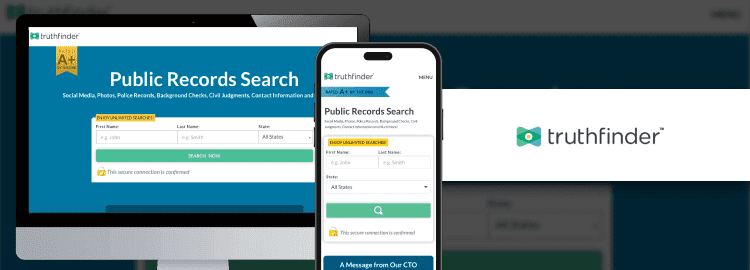
Pros
Offers in-depth background checks with comprehensive information
Simple platform navigation
Includes data from social media profiles
Available on iOS and Android for convenient mobile use
Cons
Higher pricing compared to some competitors
Most useful features require a paid subscription
Non-FCRA compliant
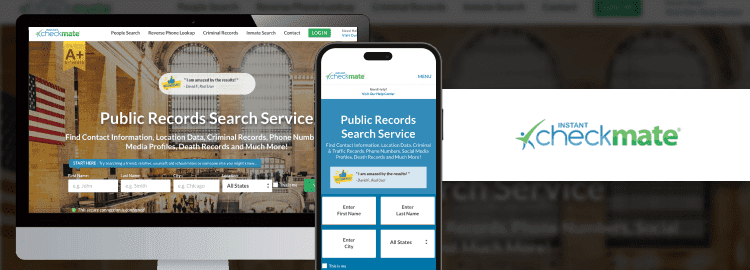
Pros
Simple steps to access detailed background information
Provides a wide range of information in each report
Quick turnaround time for delivering reports
Frequently updates its database to ensure current information
Cons
Can be more expensive than other background check services
Limited support options for users needing assistance
Non-FCRA compliant
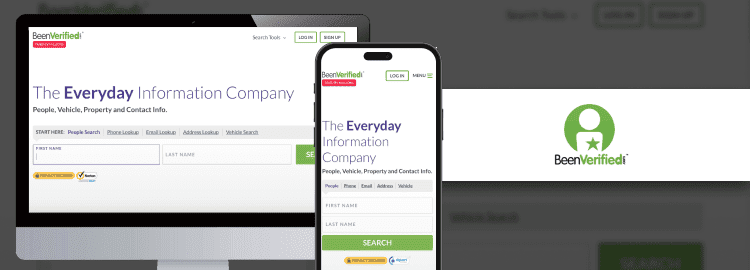
Pros
Extensive public records for thorough background checks
Gathers various types of information in one place
Information is readily available and easy to retrieve
Competitive pricing compared to other comprehensive services
Cons
Occasionally, data may not be completely up-to-date
Some reports may lack depth compared to competitors
Non-FCRA compliant
Final Note On Background Check Iowa
Understanding background check laws in Iowa is crucial for making informed and legally compliant decisions. Employers, landlords, and individuals verifying someone’s history can safeguard their interests and others through these checks. Background checks offer valuable insights into an individual’s past, ensuring trustworthiness and reliability.
Reputable background check services streamline this process, providing comprehensive and accurate information. These tools are essential for maintaining safety, trust, and compliance with state and federal laws.
Staying informed about current guidelines ensures your background screening processes are both compliant and effective. Keeping your methods up-to-date guarantees the best outcomes.
Disclaimer: Some background check sites are just for personal use and conducting basic people searches. Others, such as those used by potential employers, must comply with the Fair Credit Reporting Act (FCRA). This law limits the types of information you can find on other people. If you’re an employer or landlord using a background check for professional purposes, be sure to choose a site that’s FCRA compliant. Using a people search site that doesn’t comply with the FCRA to screen potential tenants, domestic workers or employees is illegal.
The information available on our website may not be 100% accurate, complete, or up to date, so do not use it as a substitute for your own due diligence, especially if you have concerns about a person’s criminal history. The services we mention do not make any representation or warranty about the accuracy of the information available through our website or about the character or integrity of the person about whom you inquire. For more information, please review each service’s Terms of Use.
Choose a state to learn more
Reviewed by : Stephane Bandeira
Published : August 16,2024
Written by : TJC Staff
Published : August 16,2024
Published : August 16,2024
table Of Content
Reviewed by : Stephane Bandeira
Published : August 16,2024
Written by : TJC Staff
Published : August 16,2024
Published : August 16,2024


